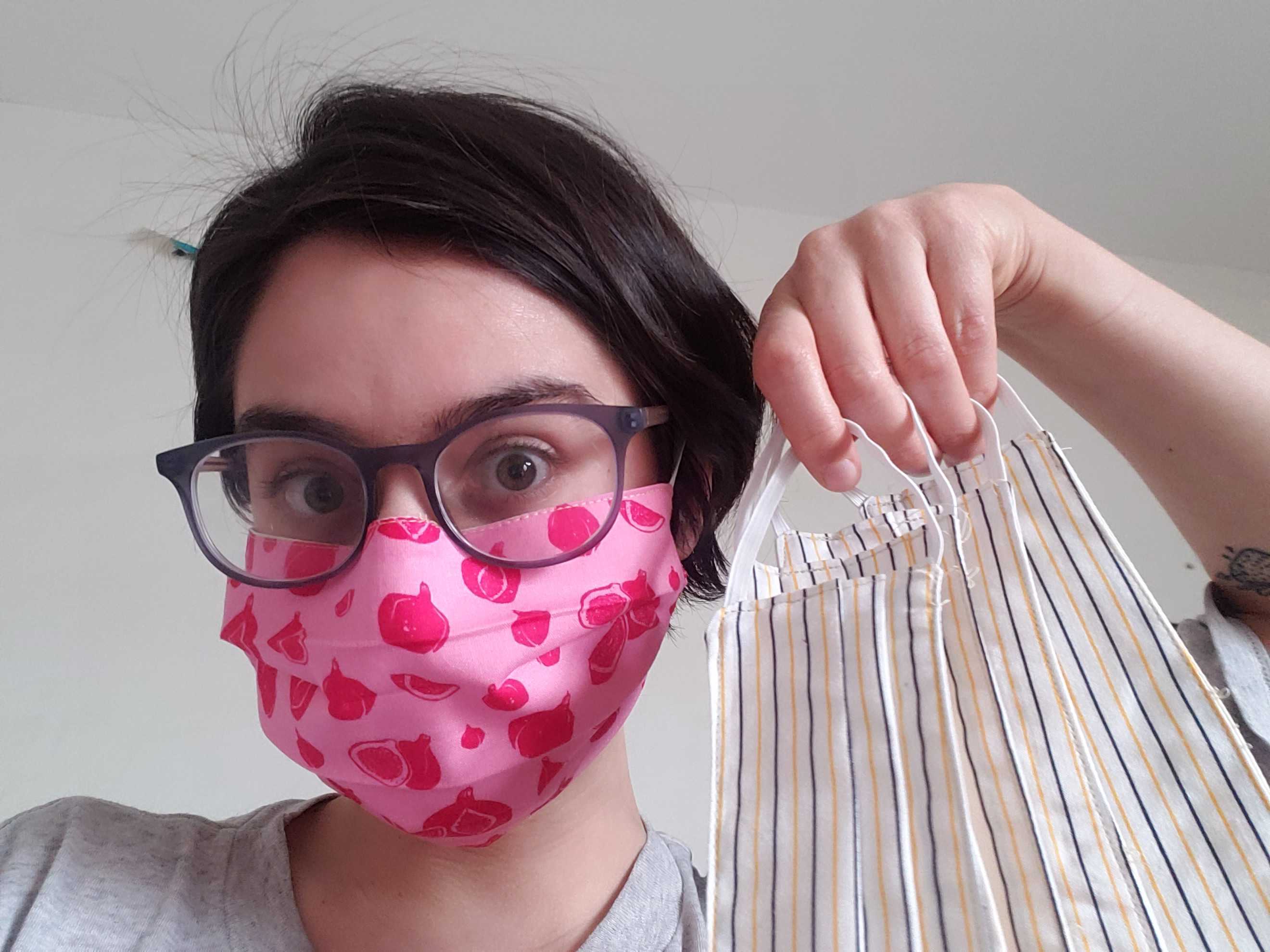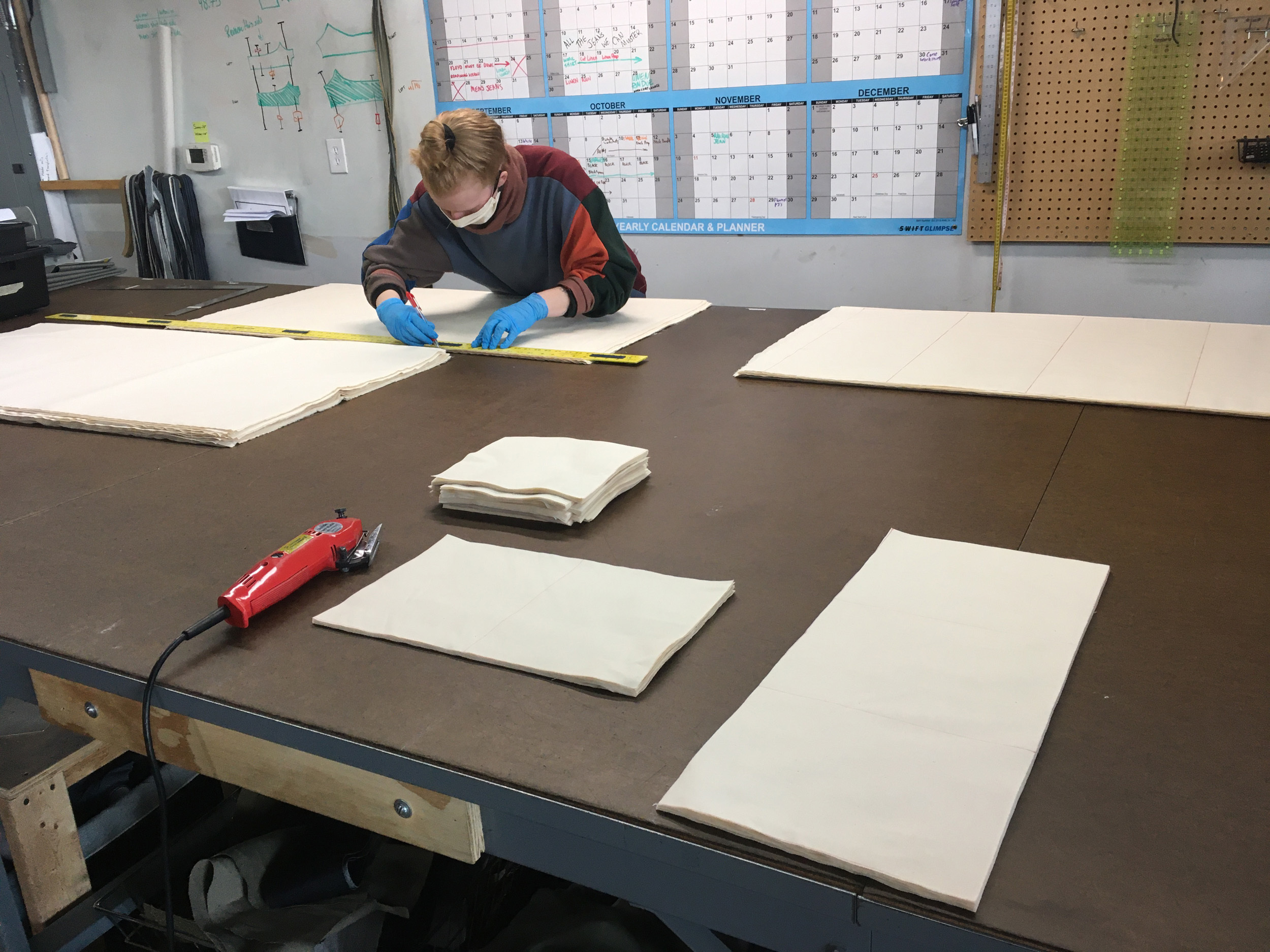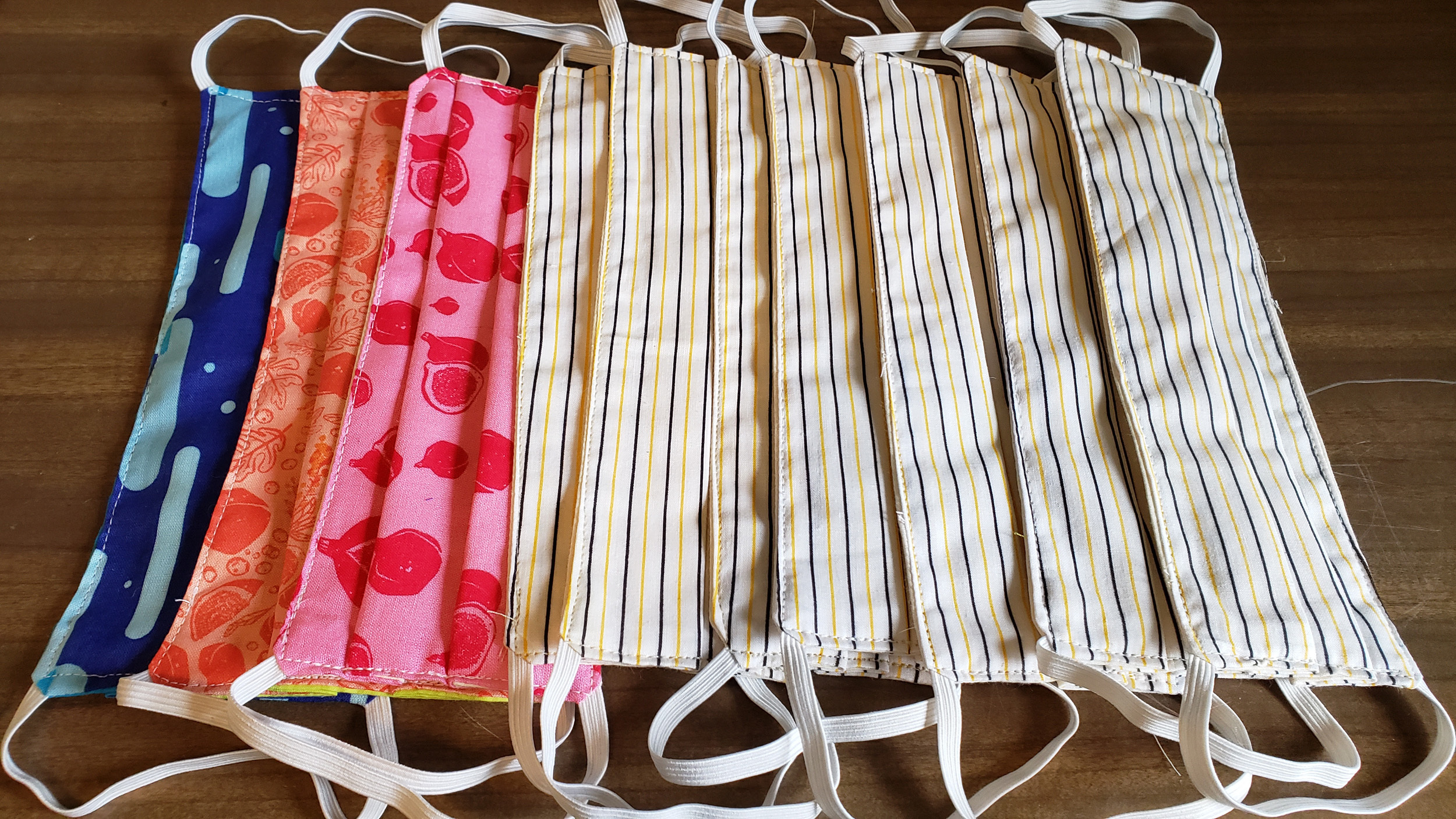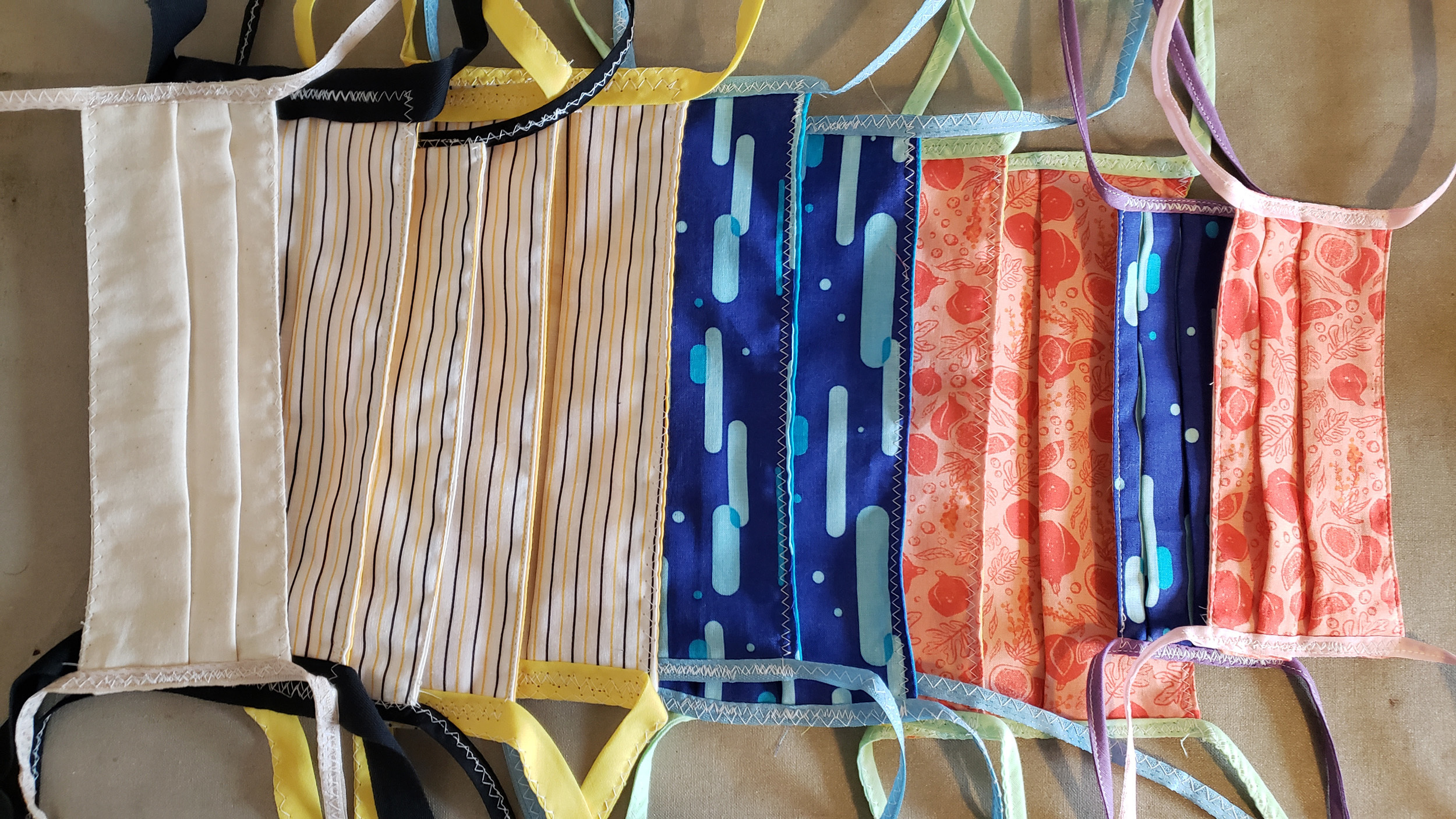Makers Respond: Studio Coordinator Kit Parks (BFA ‘15) On Facemask Creation, Donation
In addition to working tirelessly to help secure the health and safety of our school community as part of U-M’s response to COVID-19, Studio Coordinators at the Stamps School of Art & Design have been actively helping the community at large.
On March 18, 2020, 2D/Fibers Studio Coordinator and Stamps School alum Kit Parks (BFA ‘15), saw one need that Stamps could help with immediately: donating N95 masks to Michigan Medicine.
Typically used to mitigate health and safety when using hazardous materials in the studio, the N95 masks were no longer needed as the school prepared for a building closure.
"When we saw the call go out for masks and other supplies from the hospital, I wasn’t surprised that Kit picked it up and ran with it right away,” said Matt Bierl, Lead Studio Coordinator at Stamps.
“It made sense to take these supplies to where they could be effective rather than sitting in a cabinet during a shutdown. Kit’s sense of duty and community focus is admirable."
Now in early April, 2020, with Gretchen Whitmer’s “Stay Home, Stay Safe” executive order firmly in place, Parks has continued to lend a hand. In addition to offering Stamps Students support virtually as they finish the semester from their home studios, Parks has also joined the movement to sew homemade masks for first responders, vulnerable populations, and other caregivers.

According to the CDC, homemade masks are not ideal, but are acceptable as a last resort. And given the global shortages of these supplies, many feel that now is the time for makers to unite and lend a hand.
We caught up with Parks to learn more about this effort and ways others can get involved with making facemasks for the community.
Where did you hear about this homemade mask-making effort?
I first saw a news article about a hospital in Indiana calling for home sewers to produce cloth face masks. After talking with a few sewers in my network, I linked up with an organization called the Autonomous Design Union, which is a collective of artists and textile workers in Detroit. Working with Marguerite Woodward from ADU, and Margo Dalal from the Detroit Community Wealth Fund, we developed a work-from-home initiative for stitchers in the area. Since many industry sewers lost jobs and contracts as a result of the pandemic, this can be a way to supplement lost income. Thanks to Margo’s fundraising efforts, we secured funding for initial supplies and labor costs. We’re currently in the process of preparing supply kits to distribute to 15-20 stitchers, who will be paid piece rate for the masks they sew.

What pattern are you using to make the masks?
We’re using an adaptation of the Deaconess pattern. Marguerite made a video tutorial for the process we’re using, which involves chain-piecing material in order to cut down the time per mask.
How many masks have you made to date?
Personally, I’ve made about 40 masks. Collectively, we’ve cut and prepped material for a pilot run of 1,000 masks. We’ll distribute the material to stitchers this week, and plan to pick up the completed masks early next week.

How do you donate these?
I’ve given masks to family and friends working in frontline positions, as well as to volunteers from the 3C7 Block Club in Hamtramck. I’ll be donating masks I make myself to neighbors and local organizations. I’ve been careful to limit contact with others, and potential exposure to the virus while donating, by doing porch drop-offs, sanitizing packaging to the best of my abilities, and wearing gloves and a mask. My efforts are just a drop in the bucket - there is a group called Covid Mask Crafters, which has donated over 15,000 masks to date!
With the Autonomous Design Union, we’ll be selling masks to consumers outside of the hospital setting, to help conserve the supply of approved PPE for healthcare workers who really need it.
What resources have you found to be most helpful as you researched this effort?
I’ve looked to the CDC and the FDA for guidelines in regards to materials and patterns. I also attended two webinars hosted by In2Being, a company specializing in medical device development, which helped clarify responsibilities and liabilities for makers producing improvised personal protective equipment. The webinars convened over 200 attendees, including manufacturers, innovators, and hospital representatives, so they were a good place to hear about other manufacturing efforts. The Covid Mask Crafters started as a Facebook group, and that’s been a fun place to discuss prototyping various patterns and sizing with so many other makers.

What other makers have you seen stepping up to the challenges of this pandemic?
It’s been incredible to see local manufacturers stepping up to fill a need. Kenyetta Caldwell and Daune Smith from the Detroit Textile Artist Collective shifted their production to face masks almost immediately when the pandemic was announced. Detroit Sewn has repurposed their factory to manufacture masks, and Detroit’s Industrial Sewing and Innovation Center is working to do the same thing. Detroit Denim is working on producing PPE as well, and they also kindly loaned their factory space and tools to the Autonomous Design Union to use in preparing our kits for distribution.
It’s also heartening to see competitors become collaborators, which is something I noticed during the In2Being webinars, and in discussions with makers in my community. We’re all sharing information and including each other as best we can to meet the demand.
Learn more about Kit Parks and their creative work on their website.